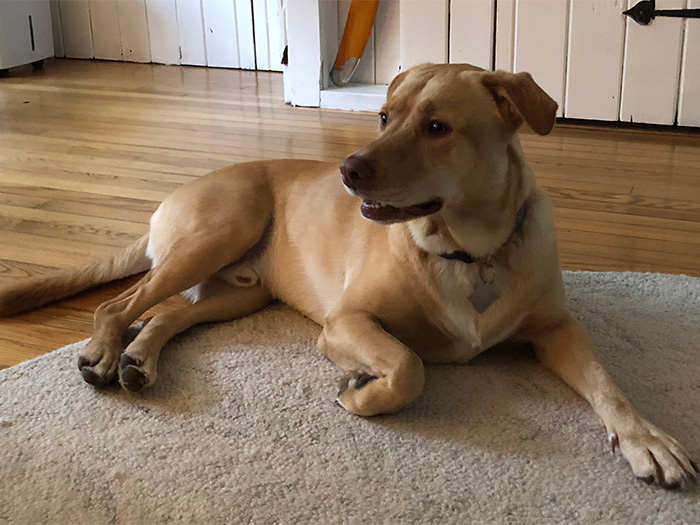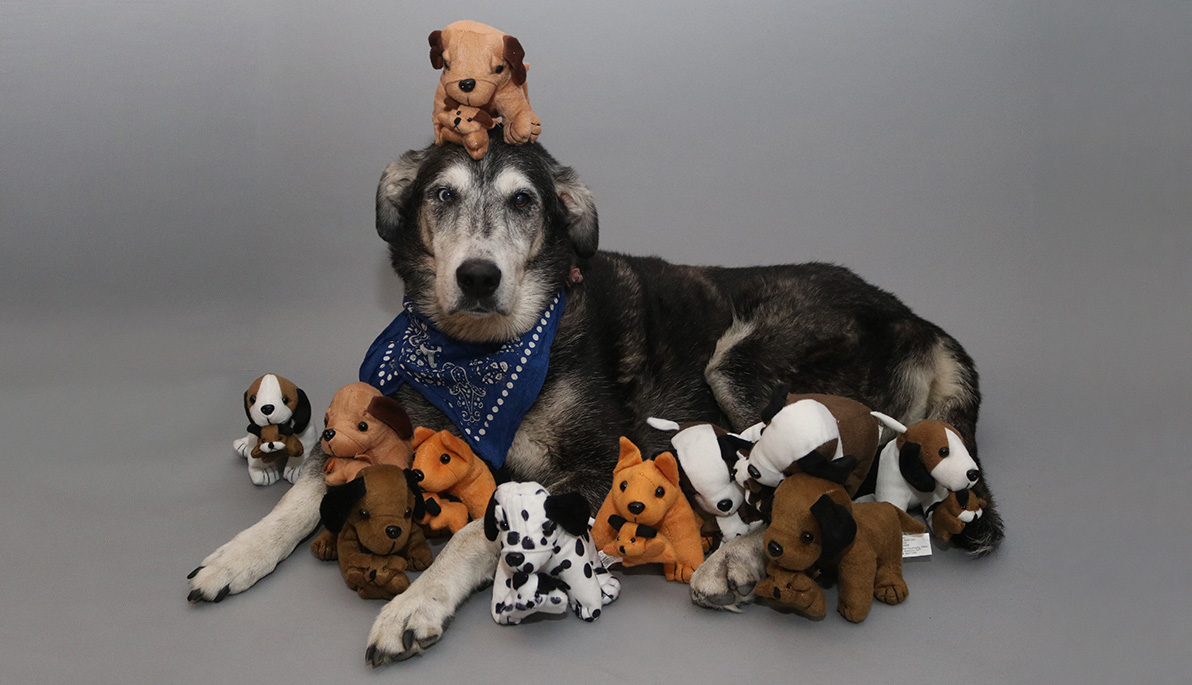News
New Research Shows Why People Are Willing to Pamper Their Pets
April 10, 2019
Pictured: Dogs’ compliant nature stirs their owners’ sense of ownership.
Pet owners don’t think of their relationships to their pets in economic terms, but marketing experts have long known that dog owners consistently report being willing to pay more for pet-related expenses than cat owners. As an expert in psychological ownership, Colleen P. Kirk, M.B.A., D.P.S., assistant professor of marketing in NYIT School of Management, wanted to find out why. Could psychological ownership play a role? Her research, published last month in the Journal of Business Research, says “yes.”
Kirk’s conclusion is visible in photos of dogs in silly poses (like the image above): Dogs are more willing than cats to let their owners dress them up or pose them for funny pictures, and owners of compliant dogs are more willing to spend money on them. Disclosure: Kirk identifies as a cat person.
Kirk’s experimental research involved asking hypothetical questions of various groups of pet owners. Initially, she confirmed that dog owners are indeed more willing to pay pet expenses; this experiment also demonstrated that dog owners have greater psychological ownership of their pets than cat owners do.

Good dog
She then showed via another experiment that diminished levels of psychological ownership of a pet (whether a cat or a dog) corresponds with a reduced willingness to pay for veterinary care, toys, or premium food. When psychological ownership is low, the difference between cat-owners and dog-owners goes away.
Last of all, by analyzing cat- and dog-owners’ survey responses in a third controlled experiment, Kirk found that the psychological ownership kindled by controlling a pet’s behavior causes dog owners’ greater willingness to pay pet-related expenses.
This finding is not surprising; control is one of the key triggers of psychological ownership, and dogs are viewed as more controllable than cats.
Many questions remain for marketing experts to investigate, such as:
- Are people willing to pay more for cat costs when their cats are trained to walk on a leash?
- If a veterinarian offers free cat- and dog-training classes, will she generate more income?
Whatever subsequent research may find, Kirk’s research shows that psychological ownership brought on by pets’ amenability is a factor in dog and cat owners’ willingness to pay for pet expenses.
Learn more about Kirk’s research in an article she wrote for The Conversation.





